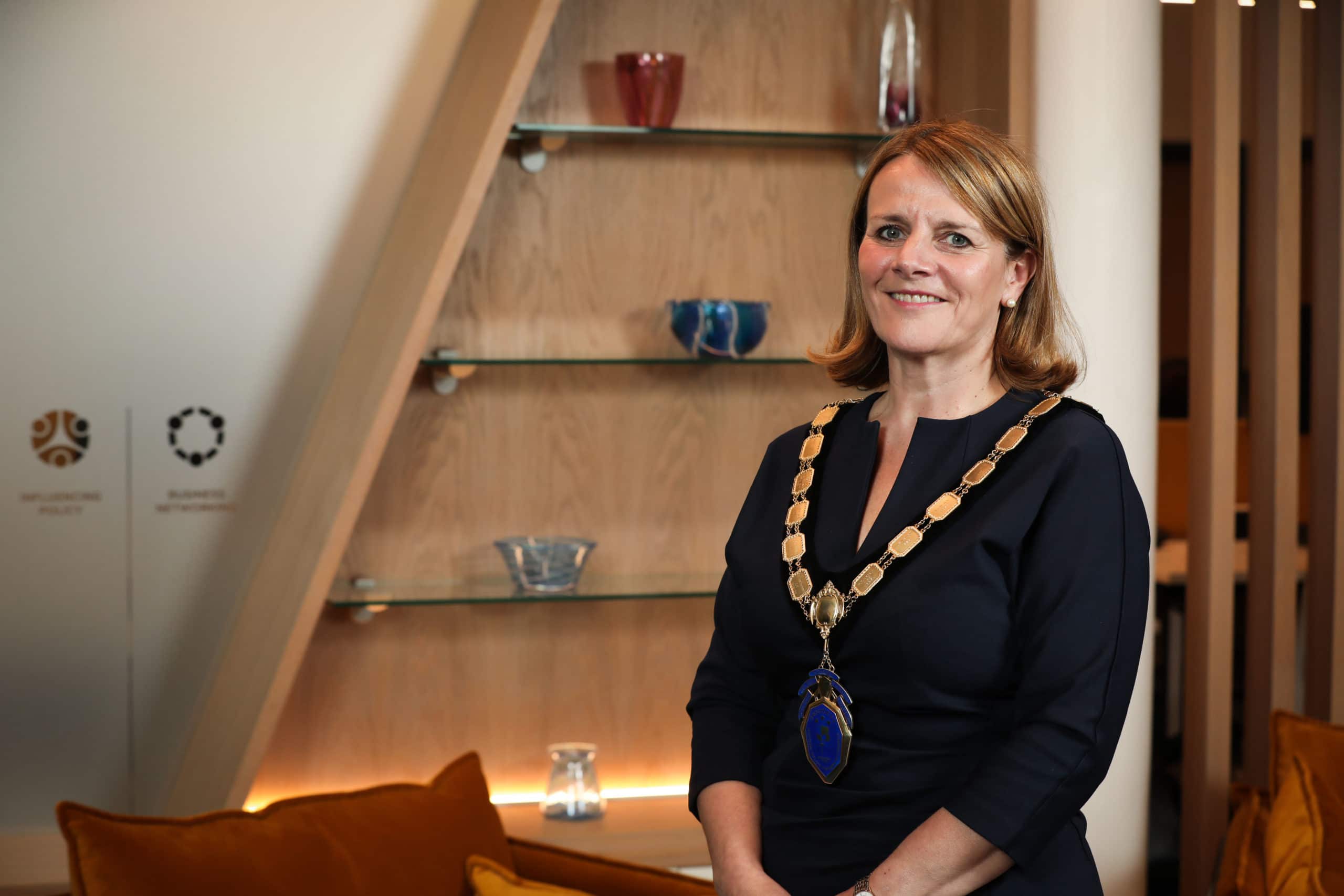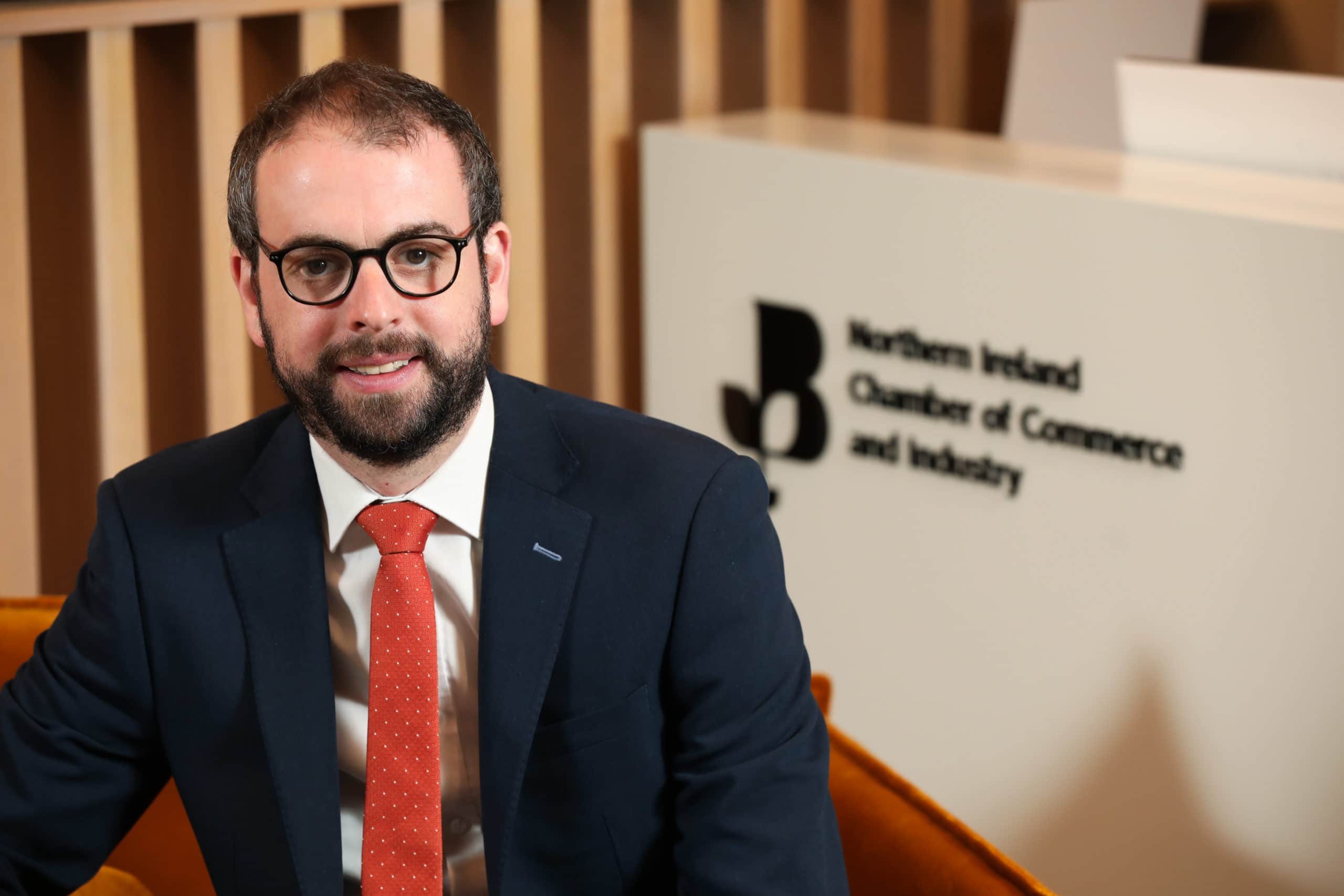Last month, I had the great privilege of becoming the 176th President of NI Chamber. It is a personal and professional honour to take up a position which has been held by some of the region’s most eminent businesspeople since 1783.
While I am excited about the year to come, I do not underestimate the scale of challenge facing our members during my tenure. From soaring costs, labour and skills shortages, to supply chain issues and uncertainty around the Protocol, the resilience of our businesses is being tested like never before. More than ever, NI Chamber has an important role to play and as President, I will do everything I can to support members and the economy.
We have a clear plan to do so and have prioritised a range of important policy areas, the first of which is supporting international and regional growth. To help facilitate the unlocking of Northern Ireland’s huge potential in the UK, Europe and around the world, we plan to redouble our efforts to promote the positive image of NI internationally through our extensive external business networks. NI Chamber will also continue to be an authentic, cross-sector voice on NI’s post-Brexit settlement and in partnership with colleagues in the Business Brexit Working Group, we are committed to driving engagement and real solutions.
We believe that long-term economic prosperity hinges on developing a skilled and inclusive workforce, one that is adequately resourced for a green, digital future. Which is why we’re developing a pro-active ‘Skilled and Inclusive Workforce’ working-group which will provide cross-sector input and expertise on all matters related to skills, education, and diversity and inclusion. That is in addition to all of the great work the team has been doing in collaboration with members already, through the existing ‘Future of Skills’ forum.
It is an unquestionable truth that we need to work harder and faster to develop a clean, green sustainable economy and with statutory targets now set at an ambitious 80% renewable generation by 2030, we now need a razor like focus on all matters related to infrastructure, energy and climate change. That’s why sustainability is another of our major focus areas.
Just last week, our latest Energy Forum focused on planning and the role of our planning system in delivering the transition to net zero. The scale of the problems with the current system was perhaps best articulated in an NIAO report which unequivocally stated that the planning system is not fit for purpose and crucially for our members, risks causing economic damage. That sentiment was reflected again in the Northern Ireland Assembly’s Public Accounts Committee (PAC) report that followed soon after. The PAC report set out 12 recommendations, identifying a number of familiar issues it considers necessary to tackle. These include uncertainty of time frames for decisions, a lack of trust in the system, the role of statutory consultees, and the NI wide delay in finalising local development plans.
With that 2030 target approaching, time is not on our side but with the right collaborative approach and with suitable urgency applied now, we can get there. With our unique cross-sector approach, NI Chamber stands ready to play its role in making change happen.
In all of this, engagement with members and collaboration between industry and policy makers is key. And of course, success relies to a very significant extent on the establishment of institutions at Stormont. Business will play its part but progress requires policy making. So I conclude by reiterating our call to elected representatives from all parties to seize the chance to stand together in partnership with business and form a stable, fully functioning Assembly and Executive without further delay.


